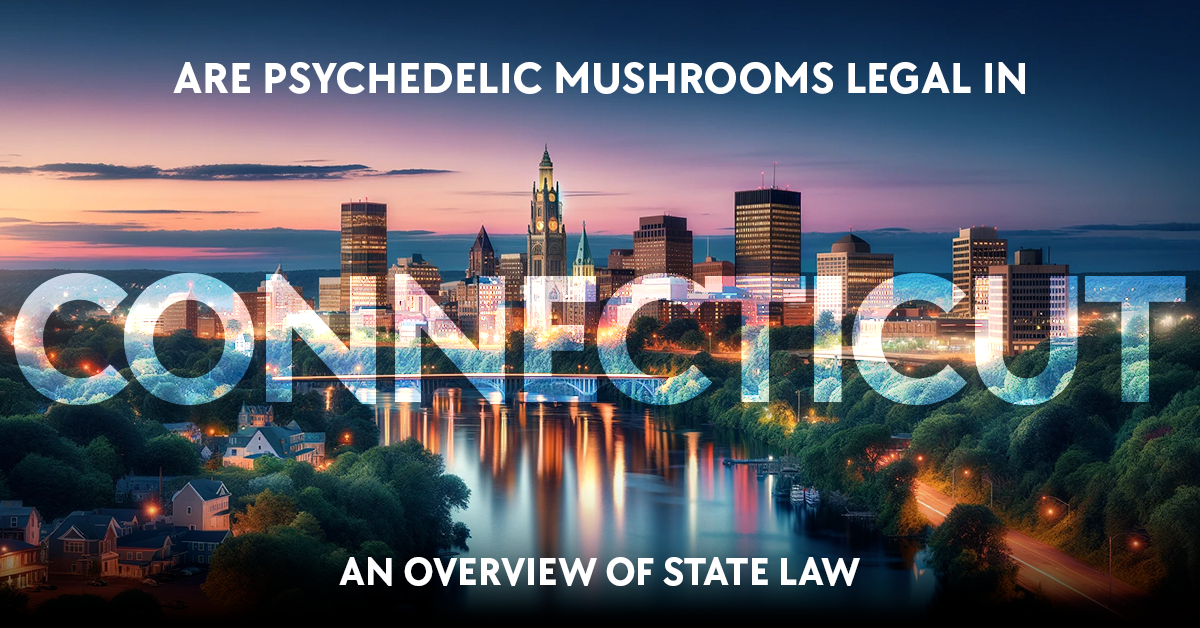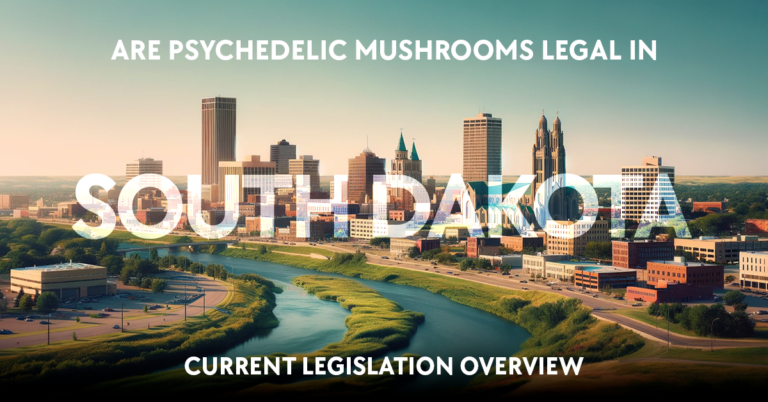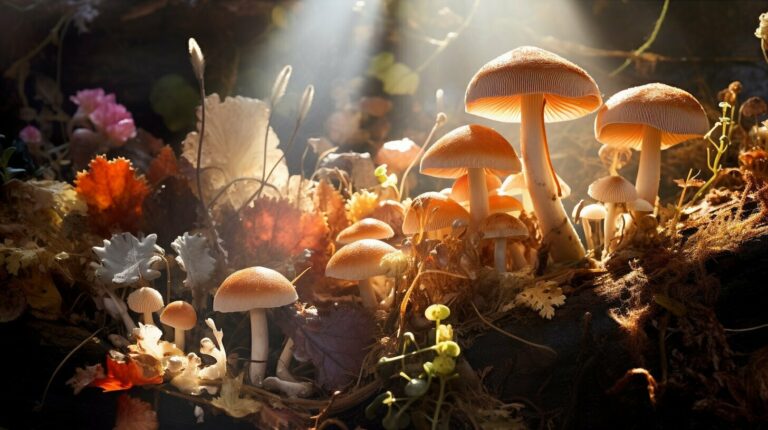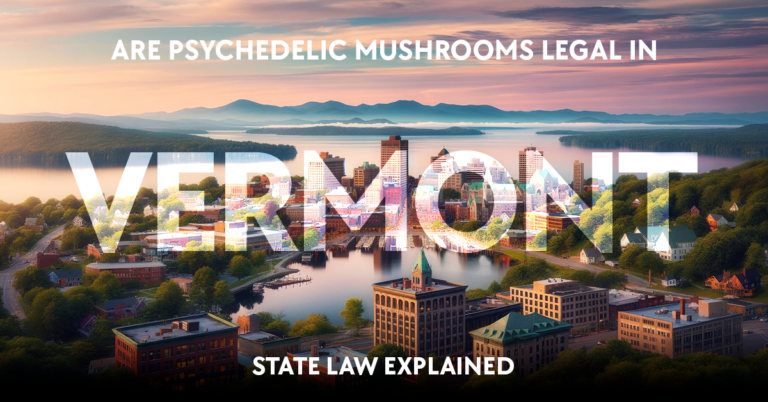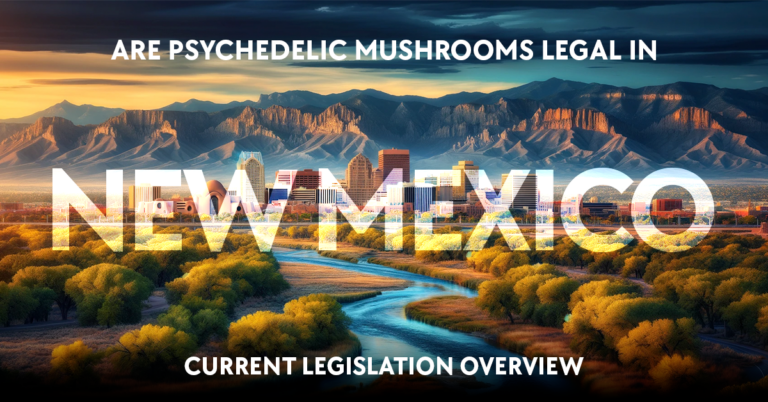In exploring the legal landscape of psychedelics in the United States, you may find that legislation is quite variable across different states. Specific to Connecticut, it’s important to understand where the state stands on the legality of psilocybin, the psychoactive compound found in “magic mushrooms.” As of the Knowledge cut-off date in 2023, Connecticut has shown a progressive approach by enacting legislation that addresses the potential benefits of substances like psilocybin. A bill passed in 2022 by the Connecticut Legislature points to an increased interest in the therapeutic potential of psychedelic substances.
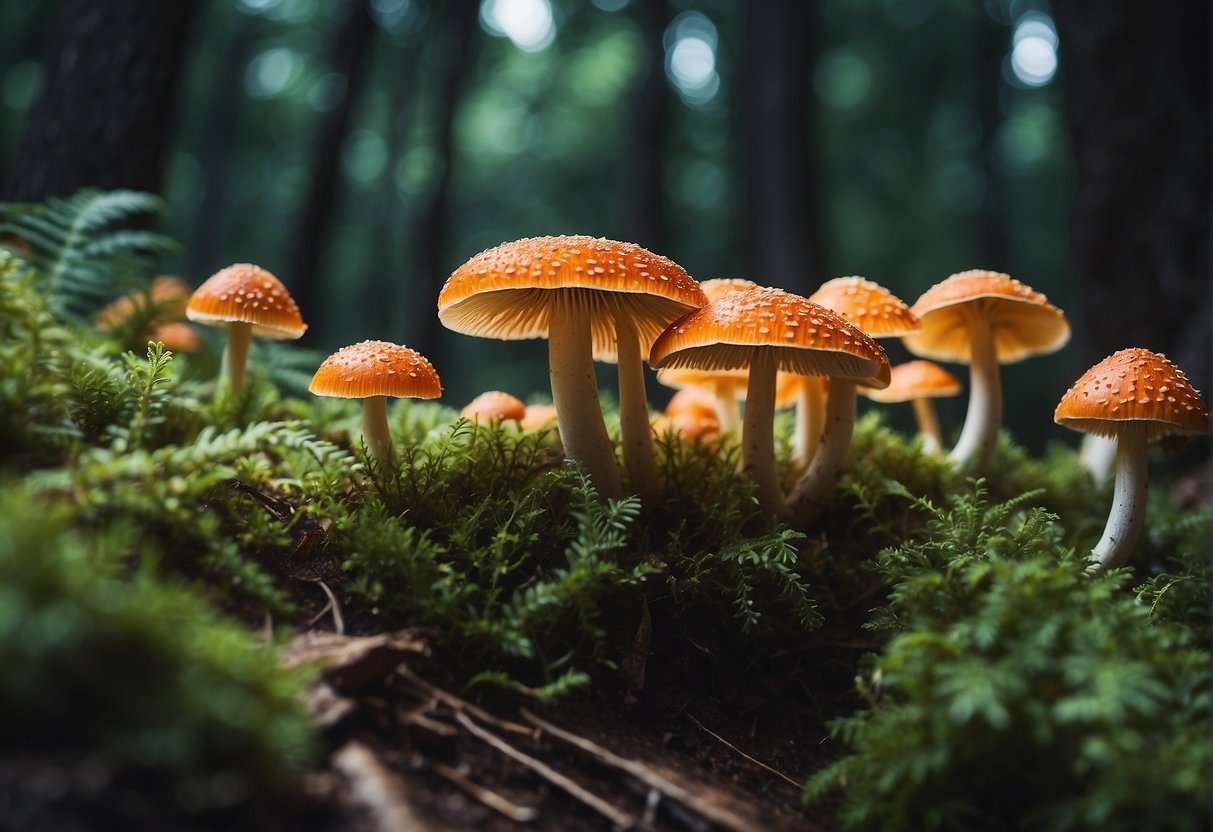
While full legalization for recreational use remains unattained, Connecticut, alongside numerous other states, has considered policies aimed at reforming existing laws that restrict access to psilocybin. By initiating measures for further research, Connecticut is taking steps toward a reformed view of psychedelics which may alter the current legal framework surrounding these substances. This process places the state among several that are examining the complexities of integrating psychedelics into legal and medical frameworks, reflecting a growing acknowledgment of their potential benefits under regulated conditions.
Legal Status of Psilocybin Mushrooms in Connecticut
Table of Contents
https://www.youtube.com/watch?v=AxJaOfV4dTU&embed=true
In Connecticut, psilocybin mushrooms—a Schedule I substance—remain illegal. Recent legislative efforts suggest change may be on the horizon.
Current State Law and Penalties
Connecticut law classifies psilocybin as a hallucinogenic substance under Schedule I narcotics. Possession of these mushrooms is typically considered a felony offense. Penalties can include a considerable fine and potential prison time, with consequences scaling up for sale or intent to sell.
Historical Context and Drug Classification
Psilocybin mushrooms have been categorized alongside other serious drugs, carrying strict criminal penalties for decades due to their Schedule I classification. This indicates a high potential for abuse and no recognized medical use.
Comparison with Other States
Connecticut’s psilocybin laws are more stringent than those in states like Oregon and Colorado, where decriminalization efforts have made strides. In contrast, Connecticut retains strict prohibitions akin to the Federal stance.
Recent Movements and Proposals
There have been proposals in the legislature aiming to decriminalize or create clinical trials for the medicinal use of psilocybin. These changes would align Connecticut more closely with the progressive drug policies of states like Massachusetts and California.
Federal Law vs. State Law
Despite state-level movements, psilocybin remains a Schedule I substance under federal law. This disparity creates a complex legal landscape where state law enforcement must balance state and federal mandates.
Legal Consequences of Possession and Use
If you’re found with psilocybin mushrooms in Connecticut, expect criminal penalties. Law enforcement can impose not just a fine but also a felony charge, which potentially includes prison time.
Guidelines for Legal Enforcement
Connecticut state police and local law enforcement agencies follow guidelines that prioritize penalizing manufacturing, known as drug factory offenses, and the sale of narcotics, with possession offenses being slightly less prioritized.
Impact of Legal Status on Users
The illegal status affects users, potentially leading to addiction without access to proper health channels or causing individuals to face harsh legal repercussions for use.
Possibility of Future Legalization
Legalization remains uncertain, yet there’s an observable shift towards recognizing potential medicinal use and health benefits. It’s possible that future Connecticut legislatures may adjust the legal status with the evolving understanding of psilocybin.
Uses and Implications of Psilocybin Mushrooms
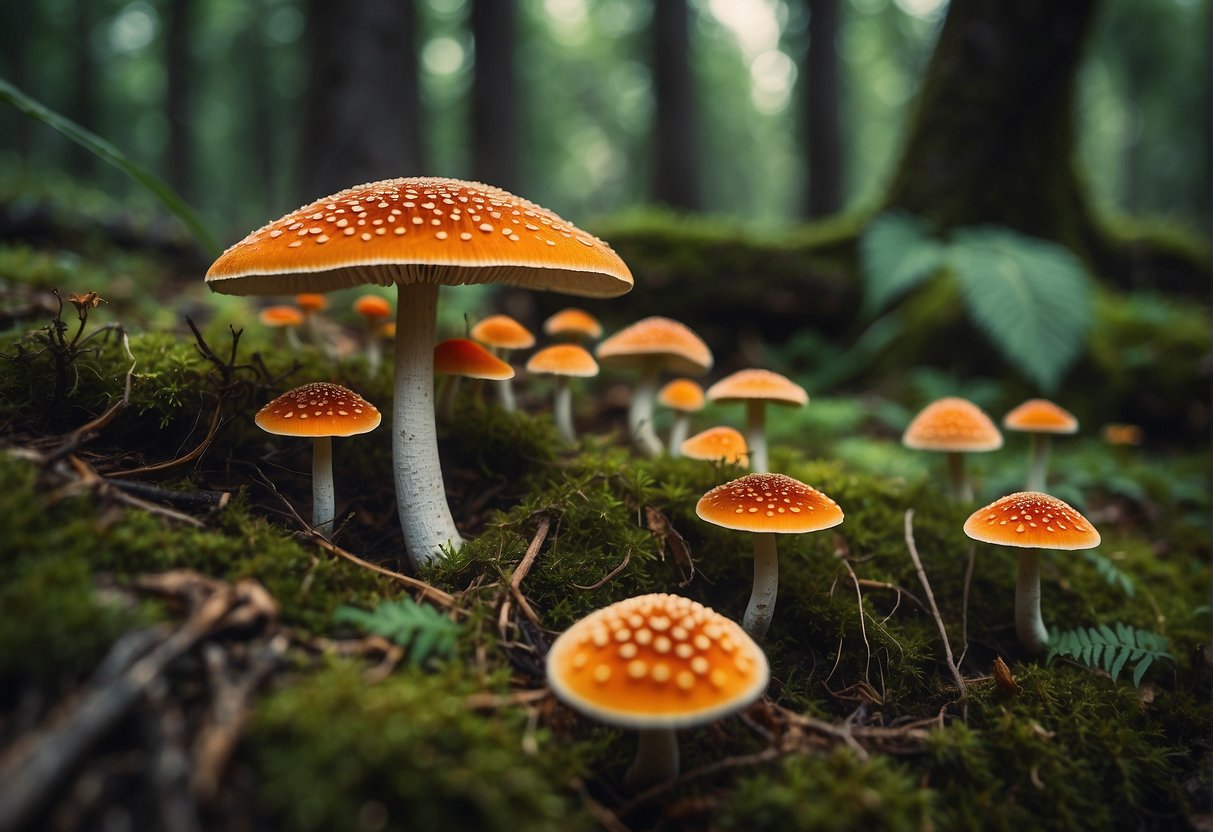
In this section, you’ll discover the specific uses and far-reaching implications of psilocybin mushrooms, including their role in medical and therapeutic settings, their research importance, public health considerations, and their comparison to other psychedelics.
Medical and Therapeutic Use
Psilocybin mushrooms have been linked to potential health benefits in the treatment of various mental health conditions. Johns Hopkins Medicine has been at the forefront, conducting clinical trials demonstrating that psilocybin can alleviate depression and end-of-life anxiety. Evidence suggests that this psychoactive substance may also support the treatment of post-traumatic stress disorder (PTSD) and aid those with existential anxiety.
Psilocybin in Psychological Research
The field of psychological research has shown considerable interest in psilocybin mushrooms. Studies focus on understanding how they can be integrated into therapy and treatment protocols. The results indicate positive effects in reducing symptoms such as suicidal ideation, which underscore their potential as a robust treatment avenue within mental health.
Public Health and Safety Considerations
Your awareness of public safety and health implications of drug use is crucial. The Department of Mental Health and Addiction Services monitors and evaluates the risks associated with psilocybin use, balancing them against the possible health benefits. It is important to keep in mind the legal status and the ongoing dialogue about psychedelic mushrooms as a controlled but potentially therapeutic substance.
Comparisons to Other Psychedelic Substances
When comparing psilocybin to other substances such as LSD, DMT, MDMA (often known as ecstasy), mescaline, and peyote, it’s important to recognize each has distinct psychoactive effects and differing potential for medical use. Research has suggested that psilocybin, in particular, has a low potential for addiction and is being studied for its therapeutic effects in a way that some other psychedelics are not.
Cultural and Societal Aspects
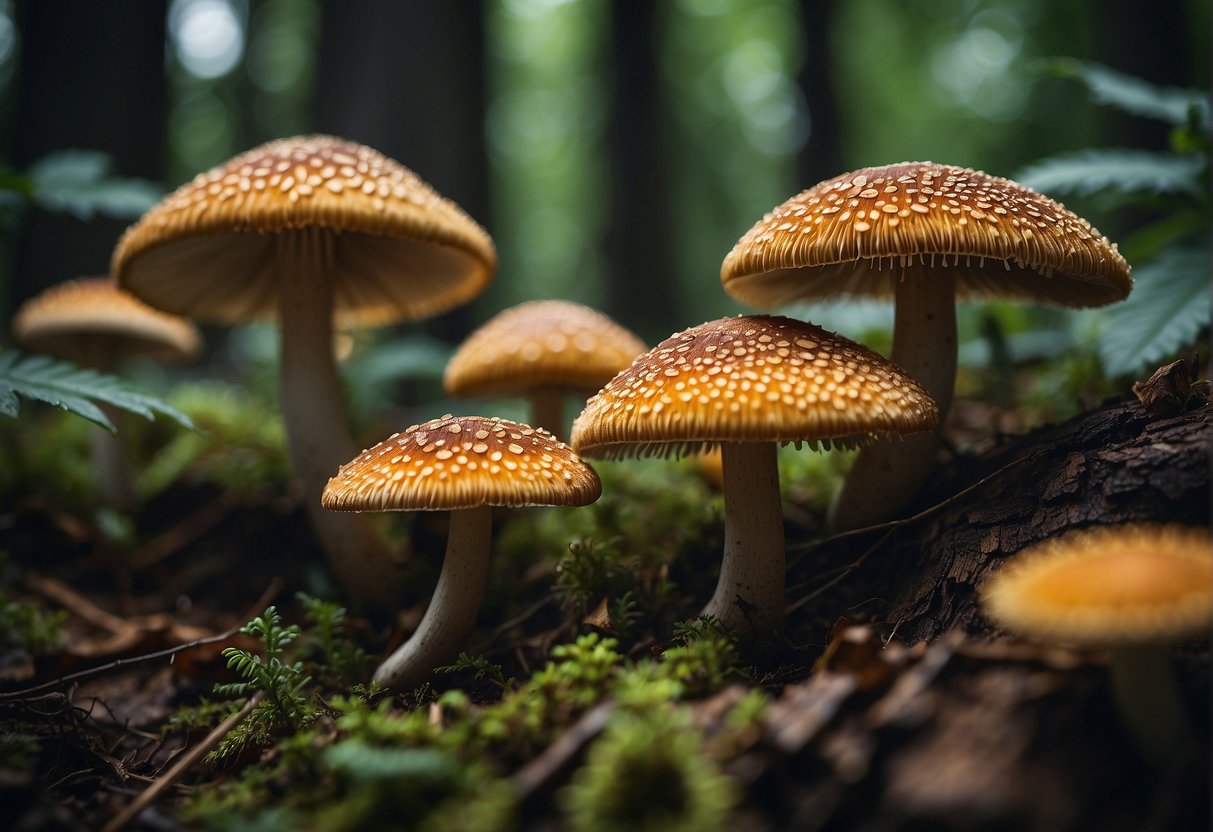
As you explore the status of psychedelic mushrooms in Connecticut, it’s important to recognize the significant role that cultural and societal factors play. The debate around the legality of psychedelics such as magic mushrooms often reflects broader societal attitudes, concerns for public safety, and encompasses various advocacy and opposition groups.
Psychedelic Culture and Perception
Magic mushrooms, being a psychoactive substance, have been both stigmatized and celebrated in different cultural contexts. In Connecticut, as in many places, the perception of psychedelics has been influenced by their association with the countercultural movements of the 1960s and 1970s. Today, the understanding of these substances is evolving, with some communities viewing them as potential therapeutic agents rather than merely recreational narcotics.
Advocacy and Opposition Groups
There are numerous advocacy groups pushing for the decriminalization and legalization of psychedelics, pointing to their potential benefits in mental health treatment. On the other side, opposition groups emphasize the risks of addiction and the potential for abuse, advocating for continued restrictions to ensure public safety. These opposing views shape the ongoing dialogue and legislative efforts around psychedelics in the state.
Impact on Communities and Laws
The community impact of drug laws is significant. Changes in legislation often reflect shifts in societal attitudes toward drugs. In Connecticut, discussions about decriminalizing psychedelics reflect a national trend that weighs the benefits against the risks. However, any changes to the law would require careful consideration of the impact on communities, law enforcement, and the health care system.
Drug Education and Awareness
Enhanced drug education and awareness are critical in shaping public opinion and informing legislation. Reliable information about the effects, risks, and potential therapeutic uses of psychedelics like magic mushrooms is essential for fostering a well-informed community. Education plays a key role in dissolving myths and can contribute to creating a more balanced and nuanced approach to drug use and safety.
Regulation and Control Measures
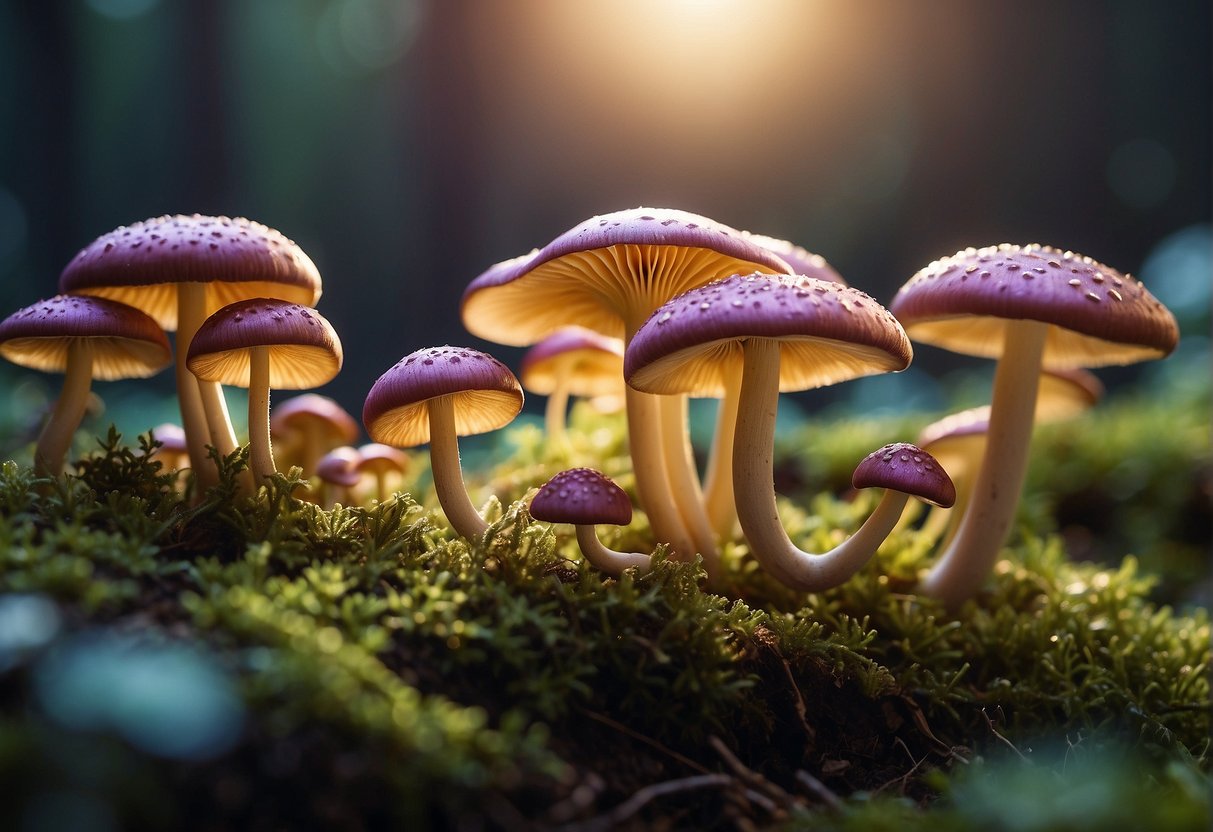
Understanding the legal landscape of psychedelic mushrooms in Connecticut involves navigating through various state laws and regulatory measures. You will encounter established guidelines for both law enforcement and medical professionals, and the specific legal parameters under which these substances can be used for therapy and treatment.
State Controlled Substances Act
In Connecticut, as in many states, psychedelic mushrooms are categorized as a Schedule I substance under the State Controlled Substances Act. This classification means that they are considered to have a high potential for abuse, no accepted medical use in treatment, and a lack of accepted safety for use under medical supervision. Keeping this in mind, your possession or distribution of these substances could lead to severe legal consequences.
Regulatory Framework for Decriminalization
Although psychedelic mushrooms are not legal in Connecticut, there have been discussions in the state legislature about the decriminalization of psychedelics. Decriminalization does not equate to legalization but would mean that the possession of small amounts of these substances would not result in criminal prosecution, becoming a civil penalty instead. The legislative process is dynamic and subject to change, so staying informed on the latest developments is essential.
Law Enforcement Training and Guidelines
Law enforcement agencies, including the state police, undergo specific training and must adhere to rigorous guidelines when dealing with substances labeled as psychedelics. Agencies are briefed on changes in the regulatory framework and the distinction between narcotics versus substances under consideration for therapeutic uses.
Legal Parameters for Medical Use
While psychedelic mushrooms remain illegal for recreational use, there is a growing body of research exploring their potential for medical use, specifically in clinical trials for treatment of conditions like PTSD and depression. The Connecticut Department of Mental Health and Addiction Services plays a critical role in regulating clinical trials and ensuring adherence to legal parameters. If you seek therapy involving psychedelic mushrooms within a clinical trial, it must be conducted under approved protocols and controlled conditions.
Exploration of Alternative Policies
When you consider the legal status of psychedelic mushrooms in Connecticut, understanding alternative drug policies, such as decriminalization, is vital. This exploration will give you insights into how different regions handle psychedelics through various laws and policy changes, and what challenges they encounter along the way.
Decriminalization Case Studies
Massachusetts and Burlington are two examples where decriminalization efforts have shaped local drug policies. They have started to re-evaluate the criminal status of specific substances, including psychedelics, and consider health benefits and public safety. Massachusetts, for instance, has introduced legislation that reflects a growing trend towards treating drug use as a public health issue rather than a criminal one.
International Perspectives on Psychedelic Laws
Internationally, countries like Mexico have undertaken strides in altering their drug policies regarding psychedelics. International law varies widely, but trends indicate a growing curiosity about the potential benefits of psychedelics and a willingness to re-examine existing drug legislation in a global context.
Potential Benefits of Policy Changes
Policy changes can lead to a range of benefits. Health benefits are often cited as a reason for legalizing or decriminalizing psychedelics. Implementing pilot programs can provide a structured framework to assess these benefits while maintaining public safety.
Challenges in Implementing New Policies
The road to implementing new drug policies is fraught with obstacles. The challenges in implementation stem from regulatory hurdles, public opinion, and ensuring consistent law enforcement across jurisdictions. Legalizing substances like psychedelic mushrooms requires careful consideration of all these factors.
By exploring these subsections, you’ve acquired a nuanced view of the possible directions Connecticut might take regarding psychedelic mushrooms and the myriad factors at play.
Final Thoughts
When considering the legality of psychedelic mushrooms in Connecticut, it’s essential to stay informed with the current state laws. As of the latest information, psilocybin mushrooms—often referred to as magic mushrooms—remain a Schedule I controlled substance. This classification means that they are not legalized for recreational use. Consequences for possession or distribution are severe and could result in criminal charges.
Should you be considering their use for therapeutic purposes, it’s important to recognize that clinical research on the potential benefits of psilocybin is ongoing, and laws may evolve as medical evidence emerges. In some states, steps towards decriminalization or facilitation of research have begun. Keep an eye on legislative developments, as Connecticut could consider similar adjustments depending on scientific and societal shifts.
Here’s what you should know regarding current legal perspective:
- Recreational use: Illegal
- Medical research: Subject to stringent regulations
- Legislative trends: Worth monitoring for future changes
Always consult legal professionals or official state resources before making any decisions related to psychedelic mushrooms. Your awareness and compliance with the law are paramount.
Frequently Asked Questions
Navigating the legal landscape of psilocybin mushrooms in Connecticut can be complex. Below you’ll find clear, informative answers to common legal questions surrounding the use and possession of psychedelic mushrooms in the state.
What is the current legal status of psilocybin mushrooms in Connecticut?
Psilocybin mushrooms are currently classified as a Schedule I controlled substance in Connecticut, which means their manufacture, distribution, possession, and use are prohibited under state law.
Can individuals possess or consume psychedelic mushrooms for personal use in Connecticut without facing legal penalties?
No, you cannot legally possess or consume psilocybin mushrooms for personal use in Connecticut without facing potential legal penalties.
Are there any sanctioned medical or therapeutic uses of psilocybin in Connecticut?
As of now, Connecticut does not sanction the medical or therapeutic use of psilocybin mushrooms. However, as research evolves, this may be subject to change.
Has there been recent legislative action regarding the decriminalization of psilocybin mushrooms in Connecticut?
While there has been legislative action in many states concerning psychedelic substance reform, Connecticut’s specific actions towards decriminalizing psilocybin have not led to changes in the law at this time.
What are the potential consequences of being caught with psychedelic mushrooms by law enforcement in Connecticut?
The consequences of being caught with psychedelic mushrooms in Connecticut can include fines, incarceration, and a criminal record, as these substances are regulated as Schedule I drugs.
Does Connecticut have any active advocacy groups or movements focused on the decriminalization or legalization of psychedelic mushrooms?
Connecticut is home to individuals and groups advocating for policy reform regarding psychedelic substances, reflecting a nationwide increase in such movements.

